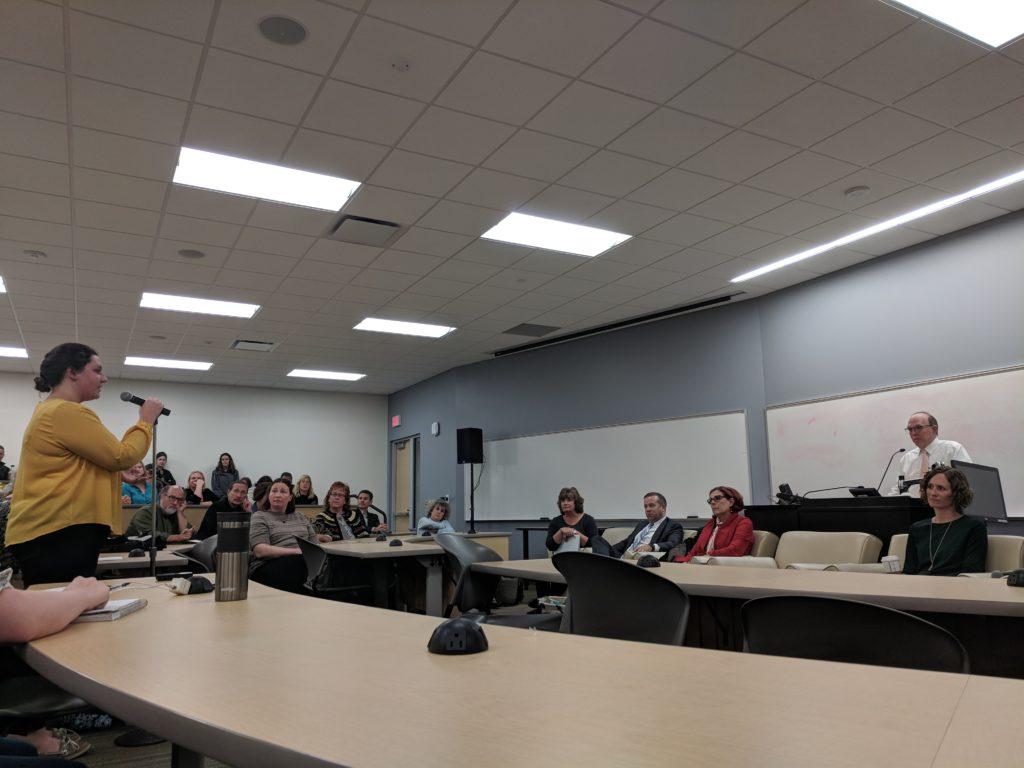Brought to the university through Larry Goldstein of Campus, LLC, NMU began the strategic planning and allocation of resources in 2016. The Strategic Resource Allocation (SRA) is a comprehensive report including 357 academic and 250 support programs within the university.
Support programs refer to programs outside of academics, such as Dining, Housing and Residence Life, and the Center for Student Enrichment whereas academic programs include majors, minors and concentrations within academic departments.
Data is taken from the 2015-16 year, referred to as the “snapshot year.” The data is compared to current conditions to show the direction that programs may be heading and how their resources should be adjusted. Programs are split into either academic or support and evaluated individually. From there, they are discussed among the SRA Implementation Task Force (ITF) as to what quintile level the resources qualify.
Quintiles are categories numbered 1 through 5 to show how the programs contribute to the university’s mission and if they are in need of more resources to do so. Quintile one means that the program serves a high importance and therefore needs more resources, whereas quintile five means that the program holds less importance to the mission and should be evaluated for possible elimination.
The ITF analyzes each program in terms of productivity, enrollment, graduation rates and the program’s relation to the university mission statement. NMU’s mission statement reads: “Northern Michigan University’s distinctive academic and career programs are nurtured by exceptional teaching and extensive opportunities for scholarship, creativity and engagement. Our supportive, connected community empowers students, graduates, faculty and staff to contribute to a diverse and sustainable world.”
On top of those factors, ITF uses six other major criteria in order to reach a consensus. Those criteria are then scored to give any program a maximum of 100 points. The criteria are: impact, justification and overall essentiality (21 points); quality (18 points); (internal demand 19 points); external and mandates (16 points); cost-effectiveness (15 points) and opportunity analysis (11 points).
Each member of ITF scores the programs individually and then meet to discuss what the majority agreement is, making sure that all members have a full understanding of the program material. These discussions can lead to adjustments by full votes of the ITF members, changing the ranking entirely. Any program that does not score at least 16 votes will not be placed in the top four quintiles.
At a forum held for the university community on Wednesday afternoon, President Fritz Erickson gave sight into how he views the SRA process.
“It’s been an interesting and exciting process for us,” Erickson said. “It’s about laying out our strategy for how we’re going to move the university forward into what I think is an incredibly bright future.”
Quintile definitions
Quintile 1:
Recommend for enhanced resources:
Programs in this quintile were deemed highly important to serving the mission and core values of the institution and could benefit from receiving more institutional support and resources.
Quintile 2:
Recommend continuing with existing resources:
Programs in this quintile are important to serving the mission and core values of the institution and are currently receiving adequate support and resources.
Quintile 3:
Recommend continuing with reduced resources:
Programs in this quintile were deemed important to serving the mission and core values of the institution, however, the provided date seemed to suggest that the program was consuming more resources than needed to provide their function.
Quintile 4:
Recommend transformation with revised resources as appropriate:
Programs in this quintile were deemed important to the mission and core values of the institution but could possibly benefit from merging with another department due to redundancies, restructuring; or could be considered for privatization.
Quintile 5:
Recommend consideration for phase out by senior leadership:
Programs in this quintile appear to be less important to serving the mission and core values of the institution and/or they present the most serious fiscal issues. These programs could be candidates for further assessment, consolidation, reduction; or outsourcing. Some programs received this designation because the group could not come to a consensus on other quintiles, thus some programs were defaulted into
this category.
























